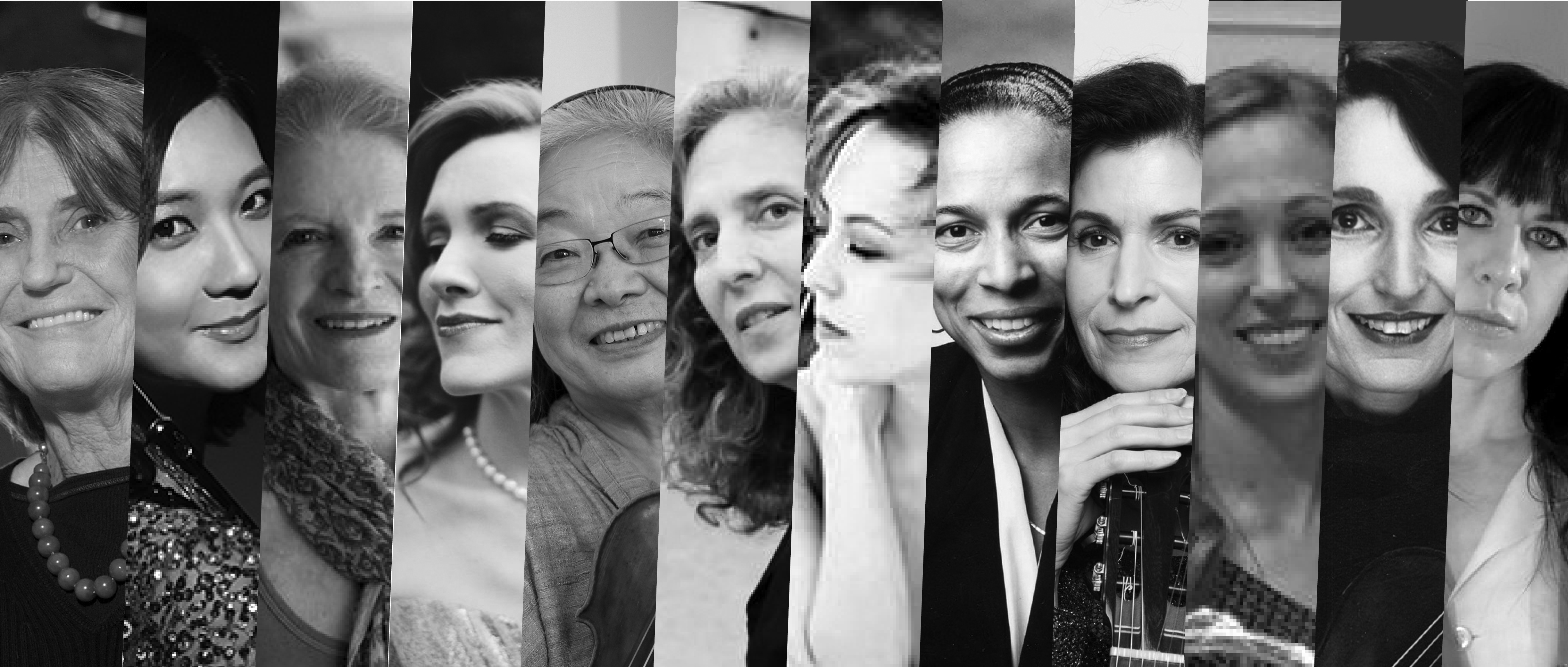Profiles in Persistence: Women of YSM
Celebrating the legacy of women at the Yale School of Music
When the newly established Yale School of Music conferred its first bachelor of music degrees in 1894, one of those four degrees was awarded to a woman, Virginia Brisac Moore. While little is known about Moore’s life, particularly in terms of what she did after earning her degree, we honor and pay respect to her memory— in part by celebrating just a handful of alumni who are hereby singled out not because their accomplishments are uniquely extraordinary, but because they reflect the lofty achievements of so many other women of YSM.
Virginia Brisac Moore
In December of 1783, Yale President Ezra Stiles met Lucinda Foote, a 12-year-old prodigy and University applicant. “Were it not for her sex,” Stiles wrote, reflecting on their interview, “she would be considered fit to be admitted.” While it would take until 1969 for Yale College to open its doors to women, the tides of gender equality began to turn at Yale’s graduate and professional schools in the mid-19th century—and it was the art schools that led the way. The Yale School of Fine Arts became Yale’s first co-educational school when it opened in 1869. And when the newly established Yale School of Music conferred its first Bachelor of Music degrees in 1894, one of those four degrees was awarded to a woman. That woman was Stratford, Conn., resident Virginia Brisac Moore. While the details of her life are largely unknown, Virginia certainly grew up in an environment that valued creativity. Two of her older brothers, Charles Herbert Moore and Howard Berndtson Moore, became successful painters. Virginia’s maternal grandfather, Elof Berndtson (later Anglicized to Benson), was a sea captain who emigrated from Sweden to the United States in the early 19th century, and her mother was a devout member of the Swedenborgian Church. Virginia, similarly, was a member of the Swedenborgian Church of New Jerusalem. Perhaps this was one outlet for music making in her early life. Virginia attended the Guy B. Day School in Bridgeport, Conn., a small, co-educational college preparatory “classical school.” Curiously, after a break in her schooling, Virginia entered the Yale School of Music as a 35-year-old student. It is not known what she studied at Yale or what she did in the years after receiving her degree, but one thing seems certain: Virginia embodied a life of independence that was unorthodox for a woman of her time. She remained unmarried and died at age 73 of appendicitis. Virginia Brisac Moore, unlike Foote, was fortunate to have been born in an era in which co-education was increasingly becoming the norm.
Syoko Aki
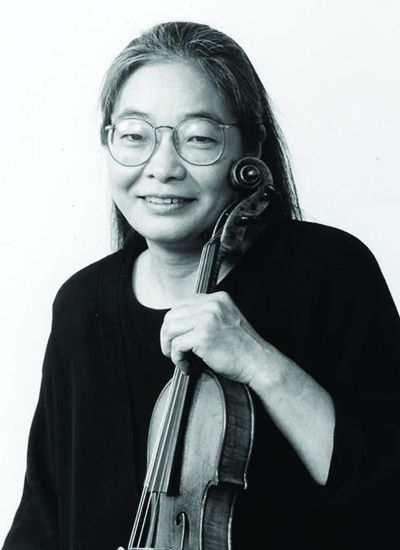
Violinist Syoko Aki ’69MM is the School’s longest-serving faculty member, having arrived at Yale in 1962 to study with Broadus Erle and join him in the Yale String Quartet then on the faculty in 1968. She completed a master of music degree at the School the following year, supplementing the education she’d received at the Toho Academy of Music in Tokyo, Japan, and at the Hartt School at the University of Hartford. Over the course of her career at Yale, Aki has appeared regularly in performances in New Haven and at the Norfolk Chamber Music Festival/Yale Summer School of Music in Norfolk, Conn. For years, Aki collaborated with pianist, composer, and School of Music Professor Emerita Joan Panetti, with whom she gave a complete performance, over two seasons, of Mozart’s violin sonatas as part of Yale’s celebration of the composer’s 250th birthday. She has also collaborated with faculty composer Martin Bresnick, recording his music for the Composers Recordings label. In 2010, Aki was the soloist in two performances of Penderecki’s Capriccio for Violin and Orchestra, with the composer conducting the Yale Philharmonia in Yale’s Woolsey Hall and at Carnegie Hall in New York City. In addition to her work at the School of Music, where, since 2009, she’s been the coordinator of the strings area, Aki has taught at the University of Rochester’s Eastman School of Music and at Purchase College in the State University of New York system.
She is a founding member and the concertmaster of the Saito Kinen Orchestra, led by Seiji Ozawa, served the New York Chamber Symphony, under Gerard Schwartz, in the same capacity, and has worked with the Mito Chamber Symphony, New Haven Symphony Orchestra, New Japan Philharmonic, and Syracuse Symphony Orchestra. Aki teaches undergraduate and graduate students at Yale.
Tanya Bannister
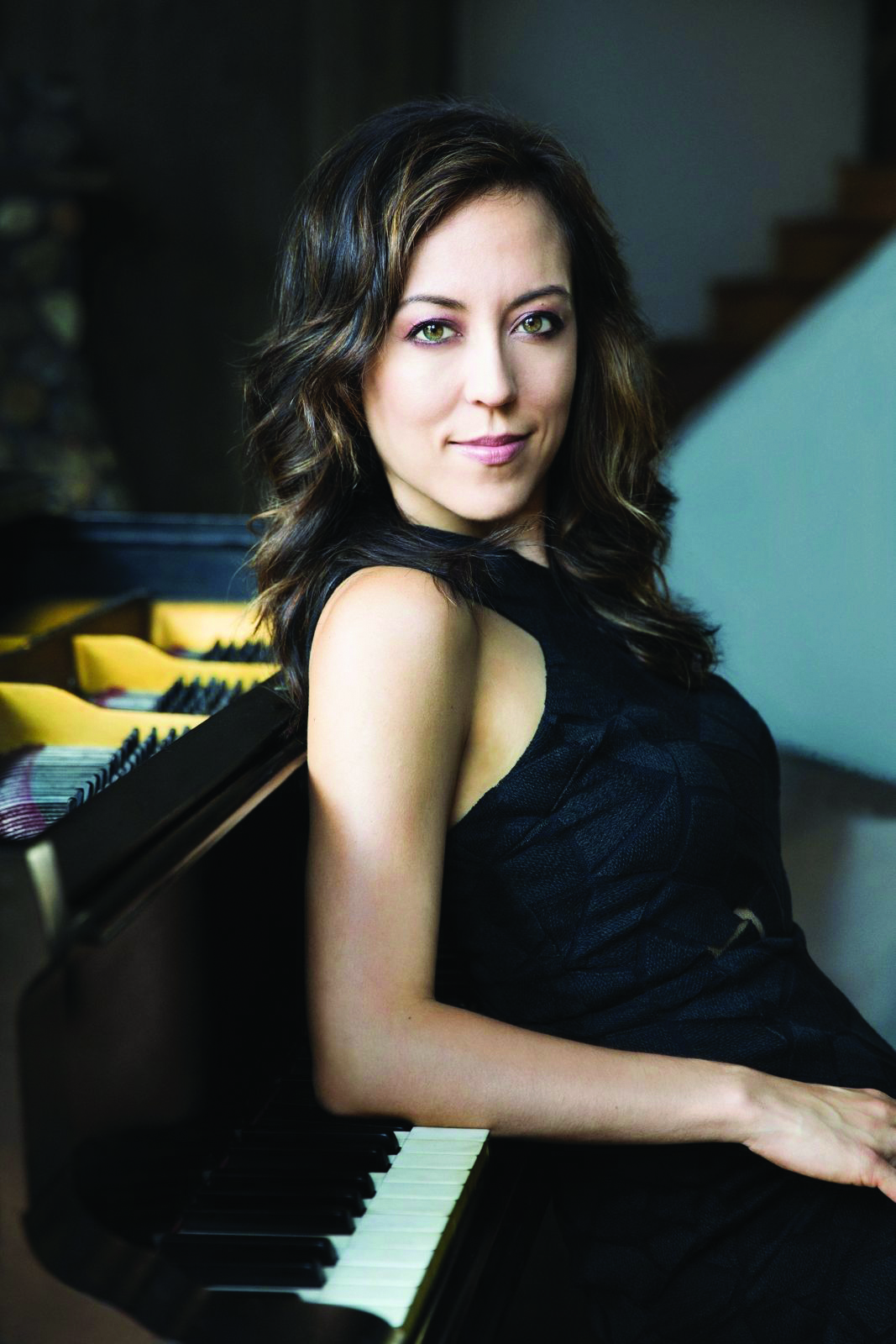
After Hurricane Katrina devastated New Orleans and the surrounding area in 2005, pianist Tanya Bannister ’01CERT, who’d recently won the New Orleans International Piano Competition, got together with three past winners of the competition to form Pianists for New Orleans, a group whose mission has been to raise money for the city’s classical music community. After a tsunami ravaged Japan in 2011, Bannister performed and recorded a Concert for Oshima to raise funds for disaster survivors on that island. Such is the impulse that moves Bannister, whose Roadmaps Festival in New York City has connected music to crisis relief work. Bannister, who was a winner of the Concert Artists Guild Victor Elmaleh Competition in 2003, is now the organization’s president, a reflection of the spirit of entrepreneurship that informs her career, one in which she’s championed the work of the composers who’re creating new music today. Among those whose works she’s premiered are School of Music alumnus and faculty composer Christopher Theofanidis ’94MMA ’97DMA and alumna Suzanne Farrin ’00MM ’03MMA ’08DMA. Bannister’s devotion to chamber music led her to establish Alpenkammermusik, a festival in the Austrian Alps, with several other like-minded musicians. Her career has been marked by appearances with such noteworthy ensembles as the Parker, Enso, and Daedalus string quartets and with individual acclaimed artists, on the world’s most celebrated stages. Bannister studied at the Yale School of Music with Claude Frank and has earned degrees from the Royal Academy of Music and the Mannes School of Music at The New School.
Sharon Isbin
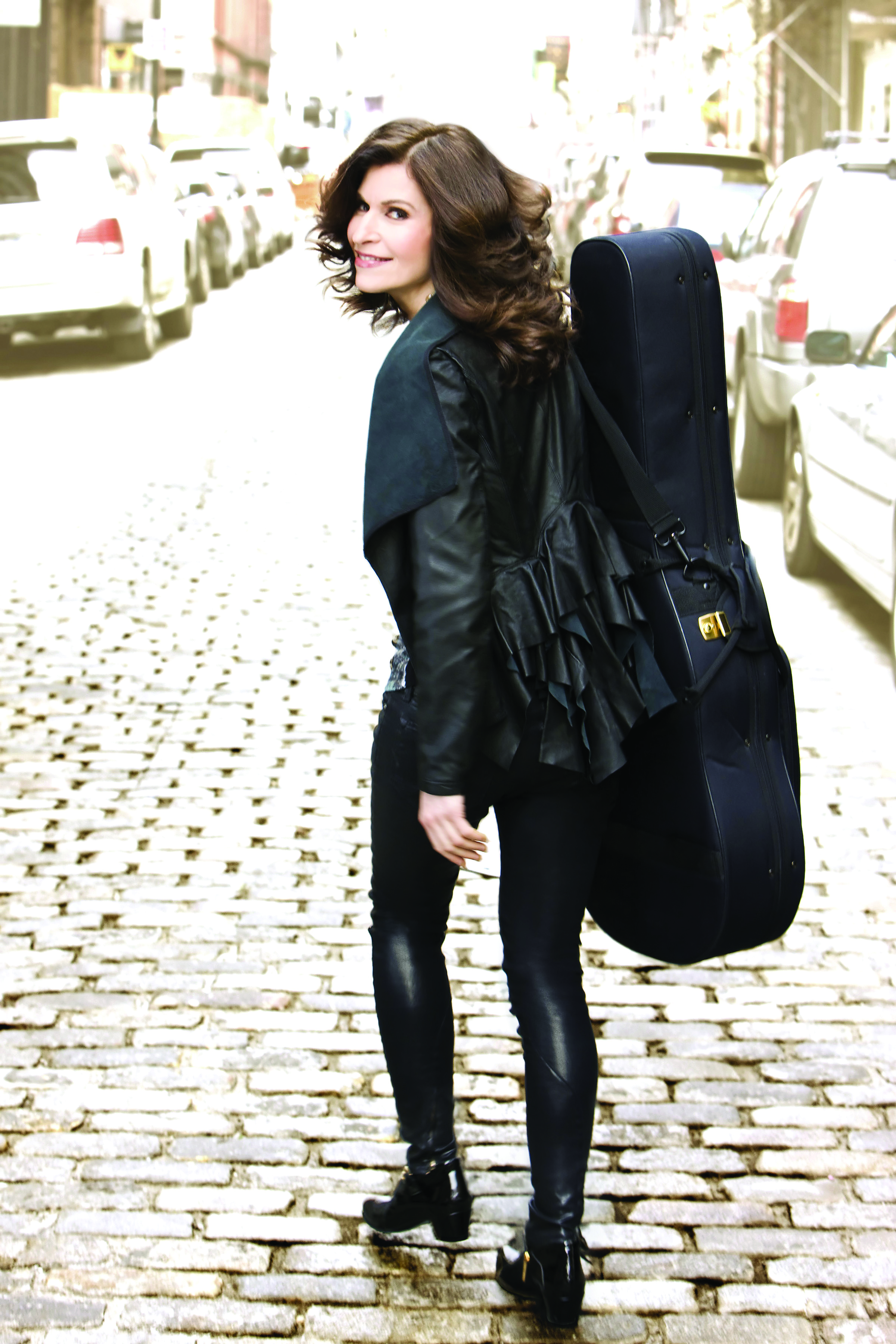
Photo by J. Henry Fair
Any conversation about classical guitarists necessarily must include Sharon Isbin ’78BA ’79MM. She is as close to a household name as anyone in that field can possibly be, and for good reason. Isbin earned degrees from Yale College and the Yale School of Music and today teaches at The Juilliard School, having established the guitar department there in 1989, and at the Aspen Music Festival and School. Her career is the stuff of classical music superstardom. The hourlong documentary film Sharon Isbin: Troubadour contextualizes her career through interviews with many of the extraordinary artists and leaders with whom she’s worked and for whom she’s performed. These include John Corigliano, Tan Dun, Christopher Rouse, Joan Tower, Joan Baez, Stanley Jordan, Paul Winter, and Barack and Michelle Obama. Boston magazine has called Isbin “the pre-eminent guitarist of our time,” further acknowledging Isbin’s place in the field. She has appeared with more than 200 of the world’s finest orchestras and has sold nearly a million copies of her recordings, which showcase her stylistic versatility as much as her remarkable virtuosity. A Grammy Award-winning artist whose appeal has been reflected on the Billboard charts, Isbin has been featured on NPR’s All Things Considered, A Prairie Home Companion with Garrison Keillor, and CBS’s Sunday Morning, and in the pages of The New York Times, The Wall Street Journal, People, and Elle, to name just a handful. Isbin is an artist for whom many contemporary composers have written, including Yale School of Music faculty composer Aaron Jay Kernis ’83, virtuoso rock guitarist Steve Vai, and Chris Brubeck, and with whom the giants of music, from the Emerson String Quartet to Sting, have sought to collaborate.
Carol Colburn Grigor
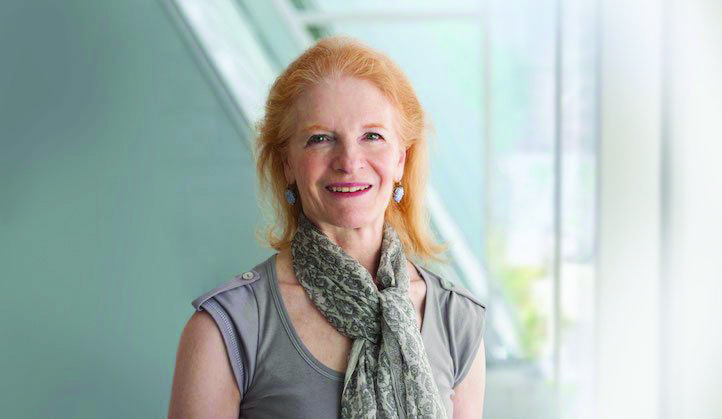
“The depth of Mrs. Grigor’s contribution to the visual and performing arts, and particularly to music and opera ... is simply astonishing.” –Sir Jonathan Mills, on Carol Colburn Grigor
In 2017, upon presenting her with the Samuel Simons Sanford Award, the Yale School of Music’s highest honor, Dean Robert Blocker described Carol Colburn Grigor CBE ’69MMA as “one of America’s most generous ... most thoughtful philanthropists.” In addition to her accomplishments at the piano, including performances in Europe and the United States and a number of recordings, Grigor has indeed established herself as an uncommonly supportive champion of the arts. “Our hobby,” she has said of her family, “is giving.” Grigor’s father, Richard Colburn, played the viola and, thanks to his success in business, gave generously to the music school in Los Angeles that bears his name. Just as Grigor helps direct her family’s businesses, she directs funding to the arts in the UK and beyond, with a particular focus on the arts sector in Scotland, including the Edinburgh International Festival, of which she was named honorary vice president in 2013. Sir Jonathan Mills, who led the Edinburgh International Festival until 2014 and is a visiting professor of music at the Yale School of Music, has said, “The depth of Mrs. Grigor’s contribution to the visual and performing arts, and particularly to music and opera, throughout the UK but especially in Scotland, is simply astonishing.” Grigor is a longtime expat resident of Scotland whose ties to institutions in her native United States remain strong. She has been named a Commander of the Most Excellent Order of the British Empire and has received the Prince of Wales Medal for Philanthropy and the French Ministry of Culture’s Chevalier de l’Ordre des Arts et des Lettres. While generous, Grigor avoids attention, quietly serving on several cultural institutions’ boards, including the Yale School of Music’s Board of Advisors.
Sara Jakubiak
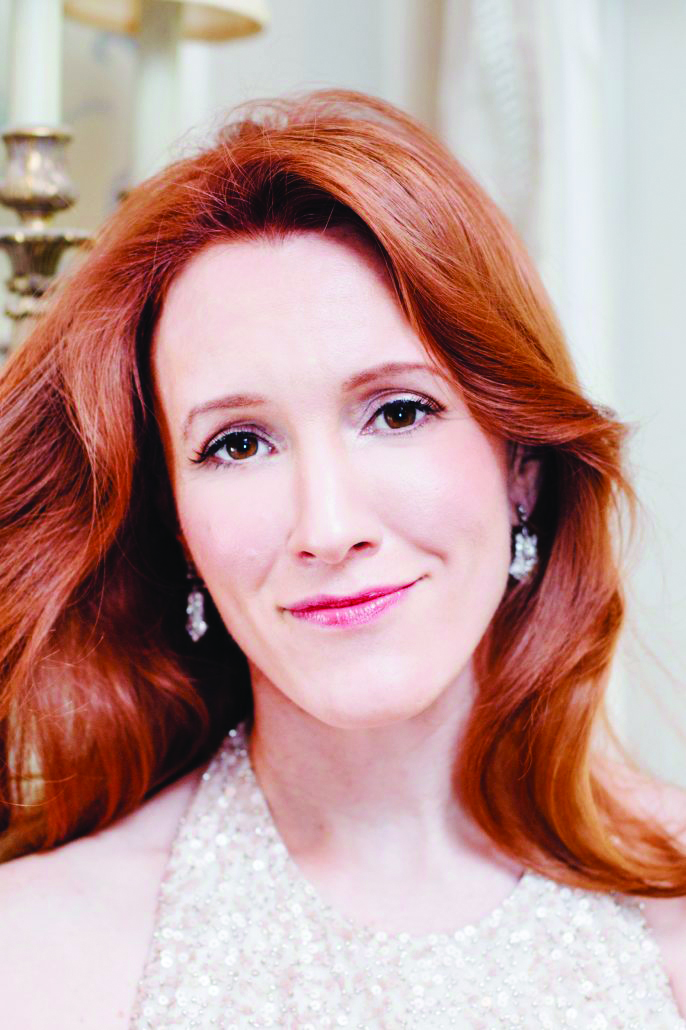
Photo by Ashley Plante
“The Yale experience gave me the tools for my development as a singer, as an artist, and as a person. The Yale Opera program challenged me; and the hard work and opportunity bestowed to me bridged that grey area between a student and a blossoming professional.”
The 2019-2020 season, for soprano Sara Jakubiak ’06MM ’07AD, reflects the kind of career many aspiring opera singers covet. Jakubiak will make her role and house debuts as Chrysothemis in new productions of Strauss’ Elektra at Covent Garden in London and Palau de les Arts Reina Sofia in Valencia, Spain. She’ll also appear in a new production of Weinberger’s Schwanda the Bagpiper at the Komische Opera Berlin. On the concert stage, Jakubiak will sing Strauss’ Four Last Songs with the Munich Philharmonic, Janáček’s Glagolitic Mass with the London Philharmonic, excerpts from Tannhäuser with the Boston Symphony Orchestra, and excerpts from Die Walküre at the Verbier Festival. At Oper Frankfurt, where she performed from 2014 to 2018, Jakubiak sang in productions of Ariadne auf Naxos, Die tote Stadt, Stiffelio, The Gambler, Der Diktator, Falstaff, Königskinder, and Das Rhinegold. Appearances in the United States have included performances with the New York City Opera and Minnesota Opera. She has recorded with the Bergen Philharmonic (Norway) and the Polish Radio Symphony and has worked with such notable conductors as Edward Gardiner, Kirill Petrenko, Zubin Mehta, Andris Nelsons, Gianandrea Noseda, and Dmitri Jurowski, among others. Jakubiak earned a master of music degree and an artist diploma from the Yale School of Music, where she was a member of the Yale Opera.
Carol Lieberman
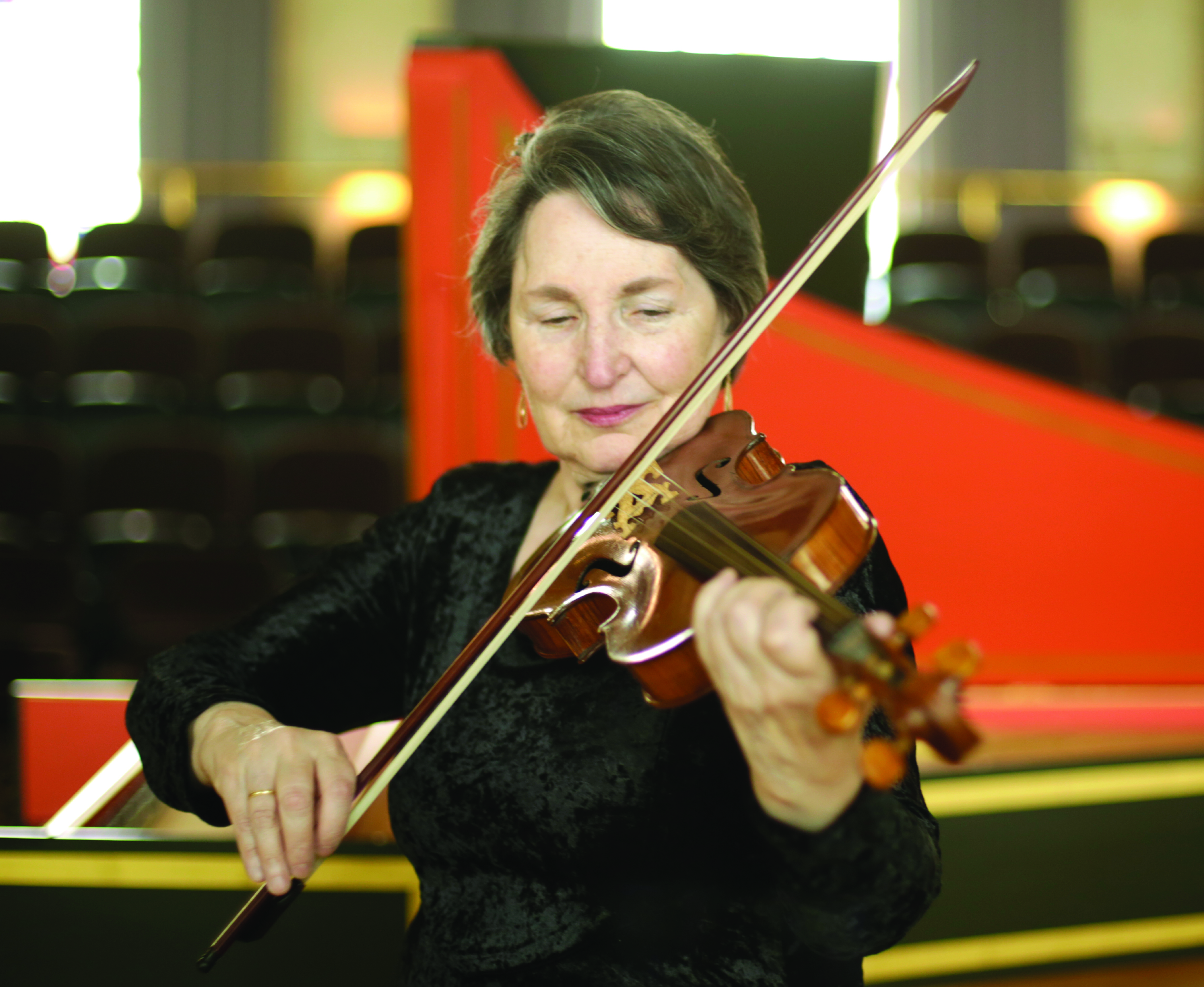
“The Yale School of Music played a pivotal role in my life, both professionally and personally. The training I received while earning my MM (1967), MMA (1969), and DMA degrees (the first violinist to receive it) was priceless and launched me on my performing and recording careers.”
The first woman in her family to have the opportunity to go to college, violinist Carol Lieberman ’67MM ’70MMA ’74DMA studied at the City College of New York before enrolling at the Yale School of Music where, after earning master of music and master of musical arts degrees, she became the first violinist to earn a doctor of musical arts. Between degree programs, Lieberman auditioned successfully for the Israel Philharmonic Orchestra, where, for two years, she worked with such luminaries as Claudio Abbado, Leonard Bernstein, and Zubin Mehta. In 1985, Lieberman joined the faculty at the College of the Holy Cross, in Worcester, Mass., where she was an associate professor of music for 34 years and served as director of the Holy Cross Chamber Players before retiring in 2019. Lieberman has also taught at the University of Maine at Orono and Boston University. Over the course of her career, Lieberman has established herself as an authority on Baroque violin performance while also engaging with music composed in the 19th and 20th centuries. At home performing a range of repertoire, from Bach to Elliott Carter, Lierberman has worked extensively with harpsichordist Mark Kroll and with the Boston Pops, Boston Classical Orchestra, and Handel and Haydn Society, and at the Connecticut Early Music Festival and the Mostly Mozart Festival at Lincoln Center for the Performing Arts.
Missy Mazzoli
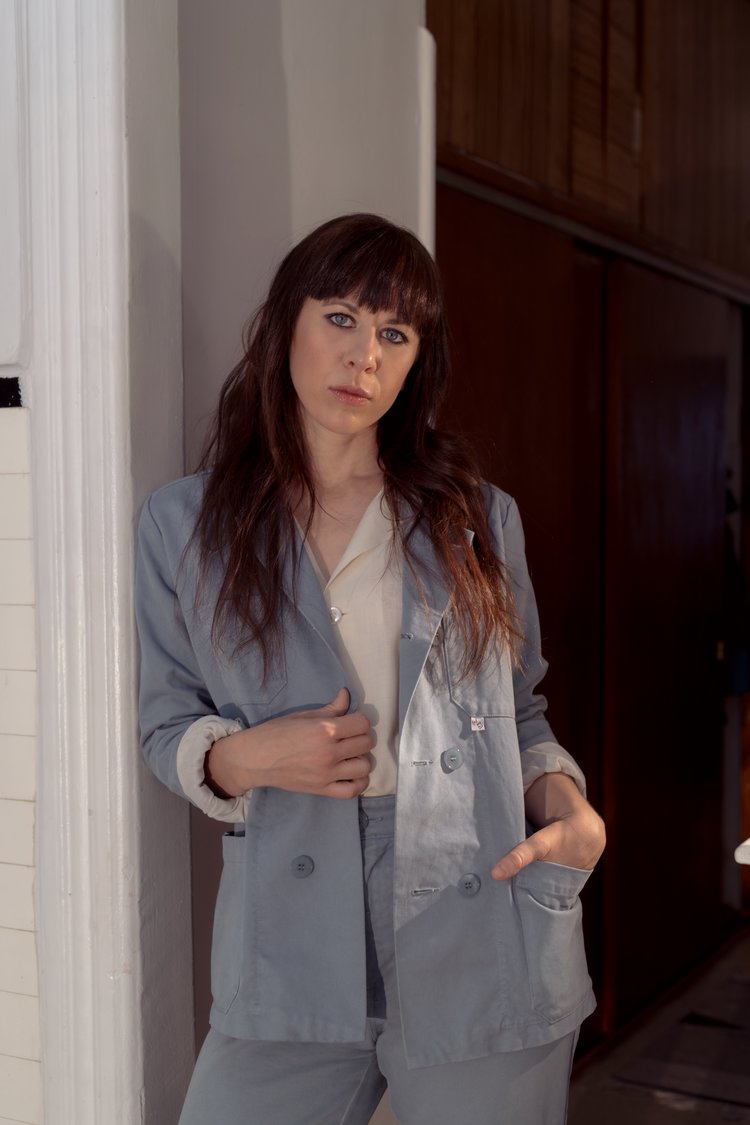
Photo by Caroline Tompkins
The New York Times has described Missy Mazzoli ’06MM as “one of the more consistently inventive ... composers now working in New York.” Mazzoli is also one of the most accomplished, despite still being in the early stages of an already remarkable career. Her music has been performed by such important artists and ensembles as Emanuel Ax, the Kronos and JACK string quartets, Opera Philadelphia, the LA Opera, Minnesota Orchestra, and the American Composers Orchestra, among many others, and at the Edinburgh International Festival and the Brooklyn Academy of Music. In 2018, Mazzoli was one of two women, along with Jeanine Tesori, commissioned by the Metropolitan Opera, a first in the organization’s history. Two years earlier, Mazzoli’s Breaking the Waves, which was commissioned by Opera Philadelphia and Beth Morrison Projects, was “among the best 21st-century operas yet,” according to Opera News. In addition to composing music for the concert and opera stage, Mazzoli has contributed to movie and television soundtracks, most notably Mozart in the Jungle and A Woman, A Part. A performing pianist and keyboardist, Mazzoli has a band, Victoire, which serves as another vehicle for her music. Mazzoli is the MEAD Composer-in-Residence at the Chicago Symphony Orchestra and has served in a similar capacity at Opera Philadelphia, Gotham Chamber Opera, and the Albany Symphony, where she was composer/educator in residence. She was executive director of the MATA Festival in New York from 2007 to 2011 and, with fellow composer Ellen Reid and in collaboration with the Kaufman Music Center, founded the Luna Composition Lab, which provides mentorship and support to young, female-identifying composers. She studied at the Yale School of Music with Martin Bresnick, Aaron Jay Kernis ’83, and David Lang ’83MM ’89DMA.
Joan Panetti
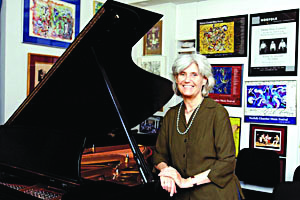
When Joan Panetti ’67MM ’73MMA ’74DMA retired from the Yale School of Music in 2018 after 37 years on the faculty, Dean Robert Blocker said, “Joan’s contagious enthusiasm has touched all who have worked and studied with her.” Panetti’s “widely admired Hearing course,” Blocker said, “transformed the practice of many ascendant musicians and has taught us all how to better appreciate the gift that music is.” She was named the Sylvia and Leonard Marx Jr. Professor of Music at Yale in 2004 and was named professor emerita upon her retirement. In addition to her work at Yale in New Haven, Panetti served for 22 years as director of the Norfolk Chamber Music Festival/Yale Summer School of Music in Norfolk, Conn. A “sterling pianist” in Blocker’s words, and a compelling composer, Panetti performed her music with the legendary Tokyo String Quartet, which was in residence at the School from 1976 until the group’s retirement from the concert stage in 2013, and performed frequently and recorded with faculty violinist Syoko Aki. Panetti earned her master of music, master of musical arts, and doctor of musical arts degrees from the Yale School of Music after earning an undergraduate degree from Smith College. During the 1987 Norfolk season, Panetti conceived a program called “Variations and Transcriptions: An Evening of Lighthearted Entertainment” and explained to a reporter from The New York Times, “I see nothing wrong with being lighthearted and a virtuoso. There’s not enough laughter in this life.” Blocker, in 2018, said, “We have all been immeasurably enriched by Joan’s presence and we are grateful for the joy she has brought us.”
Kay George Roberts
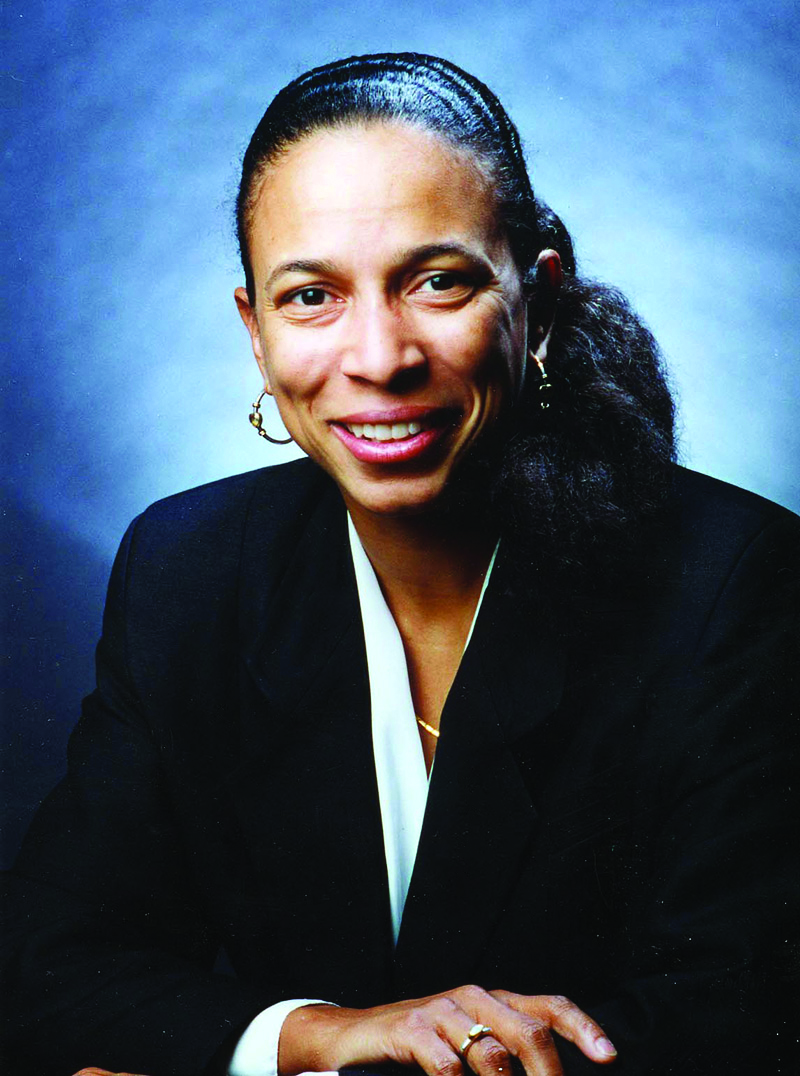
In 1986, after earning a master of music degree and a master of musical arts degree in violin, Kay George Roberts ’75MM ’76MMA ’86DMA became the first woman to earn a doctoral degree in conducting from the Yale School of Music, where she studied with Otto-Werner Mueller. Since then, having received further guidance from the likes of Leonard Bernstein, Seiji Ozawa, Andre Previn, Edo de Waart, and Denis de Coteau, Roberts has appeared as a guest conductor with such celebrated ensembles as the Cleveland Orchestra, Chicago Symphony Orchestra, Detroit Symphony Orchestra, Nashville Symphony Orchestra, and Orchestra della Svizzera Italiana. In 2004, Roberts co-led the Sphinx Inaugural Gala Concert at Carnegie Hall and three years later led the Sphinx Symphony Orchestra in the world-premiere performance of Michael Abels’ Delights and Dances at Symphony Hall in Detroit in an event celebrating the Sphinx Organization’s 10th anniversary. The organization is “dedicated to transforming lives through the power of diversity in the arts,” according to its website. Roberts was named a Presidential Professor by the University of Michigan and has received a Certificate of Special Congressional Recognition for her service to the Sphinx Organization and the community. Roberts is professor emerita at the University of Massachusetts Lowell, where she founded the school’s String Project, a public-school program designed to foster diversity in classical music. She also established and has led the Lowell, Mass.-based New England Orchestra and is principal conductor of Opera North, Inc., which presents “innovative programming including productions, recitals, concerts and an impressive array of education and community engagement performance opportunities,” the organization states.
Yoobin Son
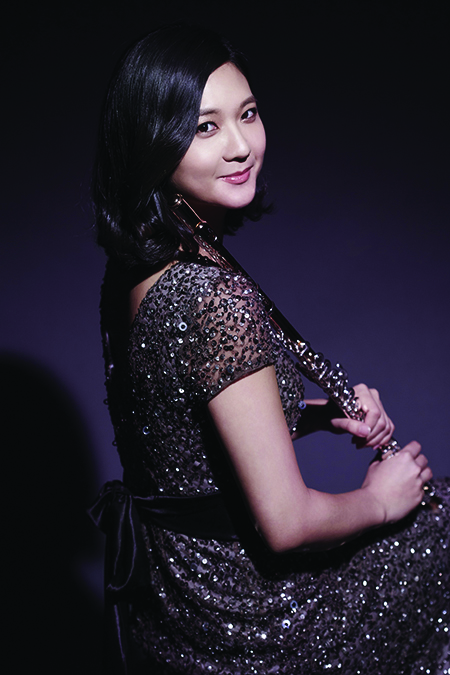
In 2012, flutist Yoobin Son ’09MM secured a position in the New York Philharmonic, becoming the first Korean musician to join the orchestra’s woodwind section. Son, who has served as the principal flutist in the New Haven Symphony Orchestra and in the Mostly Mozart Festival Orchestra at Lincoln Center for the Performing Arts, is also active as a soloist and chamber musician. She has appeared with such ensembles as the Seoul Philharmonic Orchestra and New Jersey Symphony Orchestra, and at the Marlboro Music Festival in Vermont and Music from Angel Fire in New Mexico. Awards Son has won include first prize at the National Flute Association’s Soloist Competition, grand prize at the Florida Orchestra’s Young Artist Competition, and the conductor’s award at the New Jersey Symphony Orchestra’s Young Artist Auditions. A music-education advocate, Son was a member of Ensemble Connect (formerly Ensemble ACJW), which works closely with the New York City Department of Education, and teaches at New York University’s Steinhardt School of Culture, Education, and Human Development. Son studied with faculty flutist Ransom Wilson at the Yale School of Music.
Leelanee Sterrett
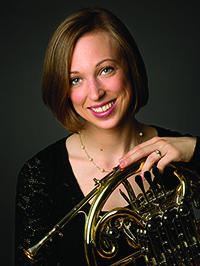
Horn player Leelanee Sterrett ’10MM was encouraged as a young musician by her musically engaged family—her mom played in the local community band—and by her teacher at the Interlochen Arts Academy, Julie Schleif. Today, Sterrett is the acting associate principal horn player in the New York Philharmonic, having joined the orchestra in 2013. She is also sharing expertise and encouragement with new generations of musicians as a faculty member at Rutgers University’s Mason Gross School of the Arts and New York University’s Steinhardt School of Culture, Education, and Human Development. Sterrett’s education included undergraduate studies at the University of Wisconsin-Madison, and training during summers at the Tanglewood Music Center, Pacific Music Festival, and Sarasota Music Festival, and at the Banff Centre for the Arts and the National Orchestral Institute. She was also a member of The Academy (a partnership between Carnegie Hall, The Juilliard School, the Weill Music Institute, and the New York City Department of Education) and Ensemble ACJW (now Ensemble Connect). A prizewinner at the International Horn Competition of America and the Yamaha Young Performing Artists Program, Sterrett has stepped out of her orchestral role and appeared as a soloist at Carnegie Hall, with the New Haven Symphony Orchestra, and at the International Horn Symposium. Sterrett studied with William Purvis at the Yale School of Music.
Julia Wolfe
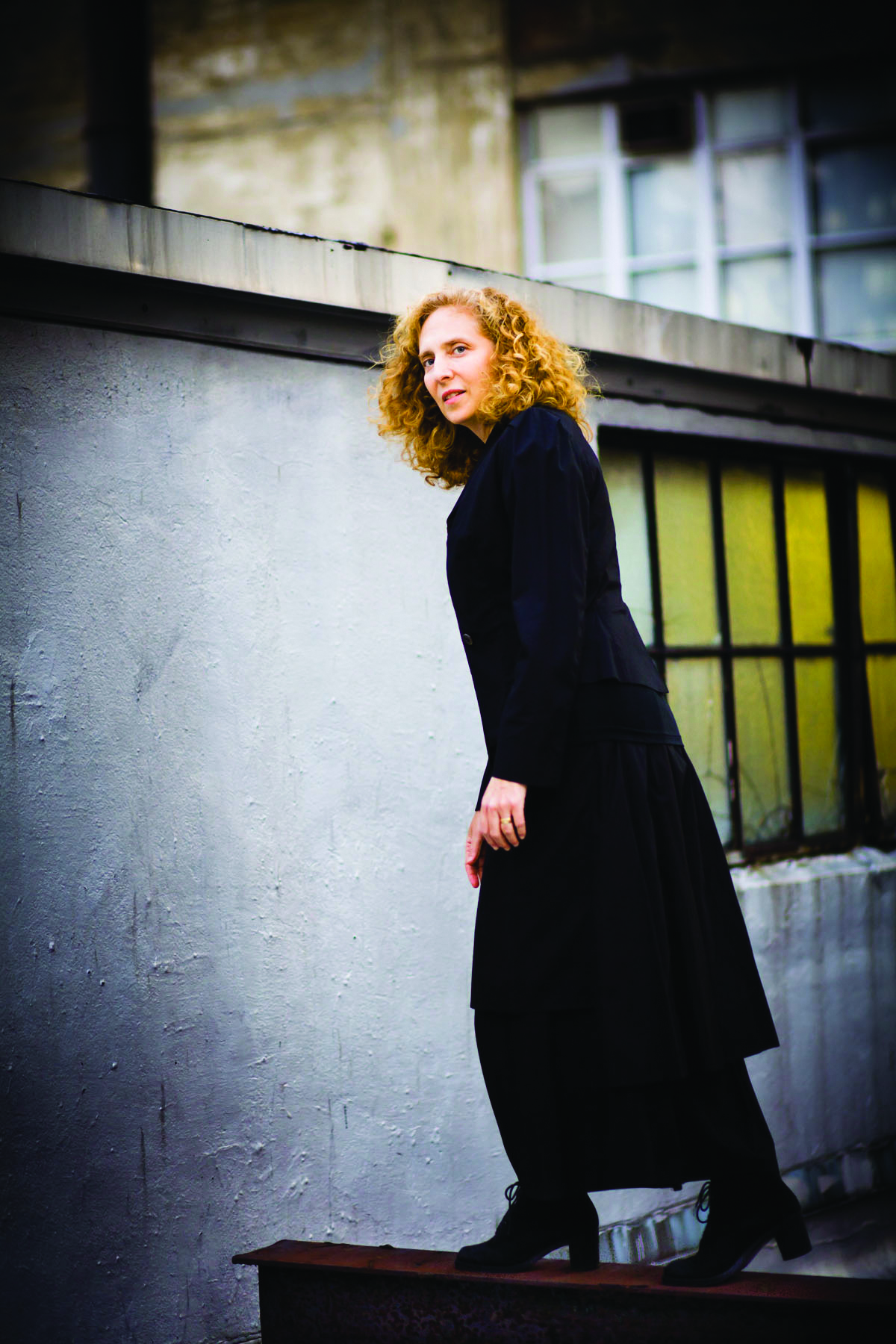
Photo by Peter Sterling
“My large-scale compositions came out of that ‘can-do’ perspective I learned at Yale. My teacher, Martin Bresnick, taught music in a social/political context. My recent works are about the American worker. Fire in my mouth, for the New York Philharmonic and women’s choir, tells the story of immigrant women working in New York’s garment industry in the early 1900s. Anthracite Fields, for the Bang on a Can All-Stars and vocal trio, addresses the issues surrounding coal mining. It all began at Yale!”
In 2014, composer Julia Wolfe ’86MM received the Pulitzer Prize for Anthracite Fields, an oratorio about those who’ve lived, worked, and died in and around Pennsylvania’s coal mines. “The music compels without overstatement,” the Los Angeles Times’ Mark Swed wrote. “This is a major, profound work.” Recognition for Wolfe’s work has also earned her a MacArthur Fellowship, an Alpert Award in the Arts, and the honor of being named Musical America’s Composer of the Year. Ensembles and organizations that have had a hand in commissioning new music from Wolfe include Carnegie Hall, the Los Angeles Philharmonic, the John F. Kennedy Center for the Performing Arts, the New World Symphony, Cincinnati Symphony Orchestra, Munich Chamber Orchestra, Danish National Symphony, Dallas Symphony Orchestra, Detroit Symphony Orchestra, Pittsburgh Symphony Orchestra, San Francisco Symphony Orchestra, Danish National Symphony, and Yale Institute of Sacred Music, among others. Among the artists with whom Wolfe has collaborated are filmmaker Bill Morrison, actress Anna Deavere Smith, choreographer Susan Marshall, projection designer Jeff Sugg, and film director François Girard. In addition to creating some of the most compelling music of our time, Wolfe has been an instrumental champion of the art form. Along with composer and Yale School of Music alumnus Michael Gordon ’82MM and Yale School of Music alumnus and faculty composer David Lang ’83MMA ’89DMA, Wolfe is cofounder and co-artistic director of the New York-based collective Bang on a Can, which the San Francisco Chronicle has called “the country’s most important vehicle for contemporary music.” Wolfe serves as professor and artistic director of composition at New York University’s Steinhardt School of Culture, Education, and Human Development. In April, the Yale Glee Club and Yale Camerata will premiere a new work by Wolfe on a program that celebrates the 100th anniversary of women’s suffrage.

